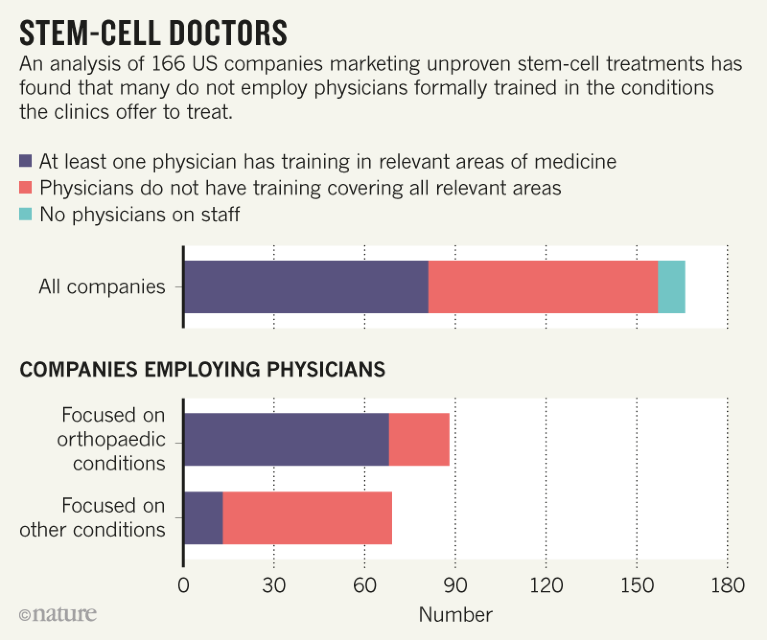SPACE
Record methane level found on Mars NASA’s Curiosity rover last week measured the highest level of methane gas ever found in the atmosphere at Mars’s surface. The reading — 21 parts per billion (p.p.b.) — is three times greater than the previous record, which Curiosity detected back in 2013. Planetary scientists track methane on Mars because its presence could signal life; most of Earth’s methane is made by living things, although the gas can also come from geological sources. Various spacecraft and telescopes have spotted methane on Mars over the past 16 years, but not in any predictable pattern. The record measurement is “excitingly huge”, says Oleg Korablev, a physicist at the Space Research Institute in Moscow who runs a methane-sniffing instrument on the European–Russian Trace Gas Orbiter spacecraft. NASA ran a follow-up experiment last weekend and recorded a methane level less than 1 p.p.b., suggesting that the high reading last week came from a transient gas plume.

The Curiosity rover is exploring Gale Crater on Mars.NASA/JPL-CALTECH/MSSS/HANDOUT/Getty
Cosmic launch An Earth-observing mission called COSMIC-2 headed into orbit from Cape Canaveral, Florida, on 25 June. It was one of several scientific projects on board a SpaceX heavy-lift rocket. COSMIC-2 is a collection of six small US–Taiwanese satellites that will measure distortions in Global Positioning System signals in Earth’s atmosphere to make near-real-time observations of temperature and other weather data. NASA experiments include an atomic clock to help with space navigation, which the agency plans to test for a year, and a trial of a non-toxic propellant for future satellite missions. The non-profit Planetary Society in Pasadena, California, sent up a solar sail to test whether the pressure of sunlight on a large, reflective surface is a viable mode of propulsion for spacecraft.
Comet mission The European Space Agency (ESA) announced plans on 19 June to fly a trio of spacecraft to study a comet simultaneously from three perspectives. The Comet Interceptor mission is expected to launch in 2028, and will travel to a stable point in space 1.5 million kilometres from Earth. There, it will wait until astronomers detect a pristine comet that is making its first journey into the inner Solar System. The three probes will intercept and observe the comet as it responds to the Sun’s heat and sprays out gases. This will be ESA’s third visit to a comet, after the Giotto and Rosetta missions.
India’s space plans The Indian Space Research Organisation (ISRO) has announced plans to build a modest-sized space station in which astronauts will spend 15–20 days. ISRO chair Kailasavadivoo Sivan told journalists in New Delhi on 13 June that the station will be ready in five to seven years. ISRO’s first human space-flight programme, called Gaganyaan, aims to send three astronauts into space by December 2021. Sivan said the space station will extend the human space-flight programme beyond Gaganyaan. The station will weigh about 20 tonnes and will be placed in a low Earth orbit, about 400 kilometres above Earth, and conduct microgravity experiments. ISRO is set to launch its second crewless spacecraft to the Moon on 15 July, and is gearing up for crewless missions to the Sun in mid-2020 and to Venus in mid-2023.
CLIMATE
Emissions rule The US Environmental Protection Agency (EPA) has finalized its plan to relax limits on greenhouse-gas emissions from power plants (pictured), eviscerating one of former president Barack Obama’s flagship climate policies. The EPA’s Affordable Clean Energy rule, announced on 19 June, allows states to set their own emissions-reduction goals. It focuses on the use of energy-efficiency technologies at power plants rather than requiring more aggressive greenhouse-gas reduction methods such as capturing and storing carbon emissions. By contrast, Obama’s plan, introduced in 2015, would have set broad goals for each state and required them to work with utility companies to reduce emissions to 32% below 2005 levels by 2030. The industry would have had to increase the energy efficiency of power plants and shift towards using renewables such as wind and solar energy and other low-carbon energy technologies.

New rules require US power plants to use energy-efficiency technologies to reduce their greenhouse-gas emissions.Credit: Avalon/Universal Images Group/ Getty
Carbon fail European Union heads of state failed last week to agree on a binding plan to make the bloc carbon neutral within the next 30 years. The EU has previously agreed to cut its collective greenhouse-gas emissions by at least 40% by 2030 and by 80–95% by 2050, compared with 1990 levels, and last November the European Commission released an ambitious strategy aimed at achieving net-zero emissions by 2050. But at a European Council meeting on 20 June, a group of Eastern European countries including Poland, Hungary and the Czech Republic, which still rely heavily on coal, refused to sign up to a definite date for achieving carbon neutrality. The agreed text of the council’s conclusion calls on the commission and national governments to put in place a framework “to ensure a transition to a climate-neutral EU in line with the Paris Agreement”. A footnote adds that climate neutrality must be achieved by 2050 for a “large majority” of the bloc’s 28 member states.
EVENTS
Mouse facility Scientists at a UK mouse-genetics centre have written an open letter decrying a recommendation to close the facility’s on-site academic research unit. Closure of the Mammalian Genetics Unit (MGU) at the MRC Harwell Institute would be “a major threat” to UK mouse genetics, says the letter, organized by 14 of Harwell’s top scientists. More than 150 researchers have backed the letter since the organizers sent it out to peers on 20 June in a bid to rally support. The MRC Harwell Institute hosts a mouse-breeding facility and the separate MGU, where scientists study disease using animal models. But a review by the Medical Research Council (MRC) — Britain’s public medical-research funder — concluded in March that there is no longer a case to support the MGU, which employs about 150 people, most of whom are scientists. It recommended that the mouse-breeding facility remain open and instead partner with academic clusters around the country. In response to the criticism, the MRC said it recognizes the importance of mouse research and is committed to establishing the most effective approach to supporting such science. A final decision is scheduled for December. The proposal comes weeks after the Wellcome Sanger Institute in Hinxton, UK, decided to close its animal-research facility.
PEOPLE
Food-agency head The Food and Agriculture Organization of the United Nations (FAO) has elected Qu Dongyu — China’s vice-minister of agriculture and rural affairs — as its next director-general. The FAO wields influence over global and local food and agriculture policies, and helps to shape agricultural research agendas. With around 11,500 staff, it is the largest UN technical agency, and has a budget of US$2.6 billion for 2018–19. Qu will be the FAO’s first Chinese director-general, and succeeds Brazil’s José Graziano da Silva. He won 108 votes from the FAO’s 194 member states, beating the European Union’s candidate and a US-backed candidate from Georgia. He will start his four-year term on 1 August. Qu holds a PhD in agricultural and environmental sciences. He has said that his priorities will include improving agriculture in tropical and drought-stricken countries.
TREND WATCH
Many companies offering unproven stem-cell therapies don’t employ clinicians with relevant medical training, according to an analysis of 166 US businesses advertising such treatments. Researchers looked at the qualifications of clinicians listed on each company’s website. Nine companies did not list any physicians. Five of these were staffed entirely by podiatrists, two by naturopaths and one by dentists. Of the companies that employed doctors, just 81 listed physicians who had training that the researchers deemed necessary to cover all the conditions the firms offered to treat. Among those marketing stem cells for orthopaedic conditions, 77% listed at least one physician with formal training in orthopaedics. But only 19% of practices focused on non-orthopaedic conditions employed physicians with relevant specialist training. “Patients need to ensure they look at trusted sources of information and consider the backgrounds of physicians when considering medical care, including regenerative care,” says Zubin Master at Mayo Clinic in Rochester, Minnesota, who led the study.

Source: W. Fu et al. J. Am. Med. Assoc. 321, 2463–2464 (2019)






